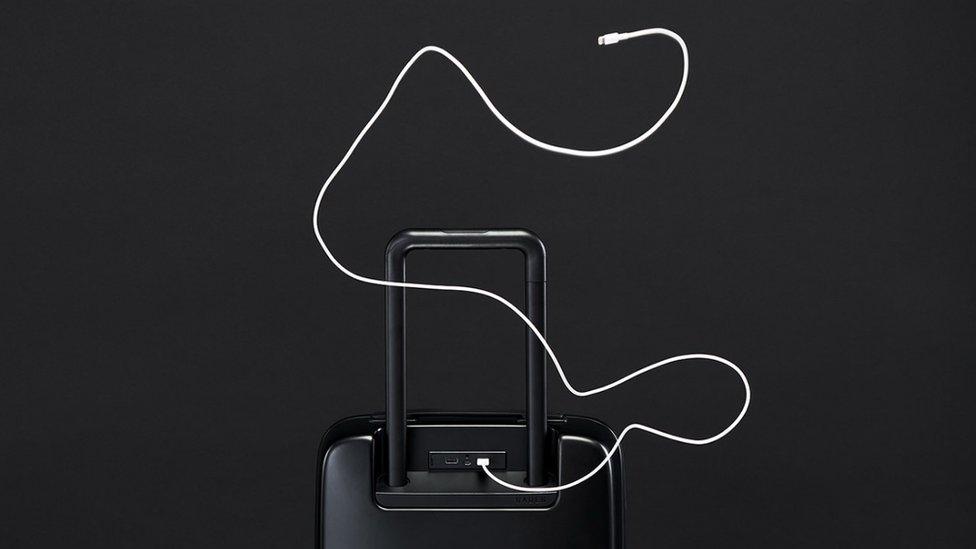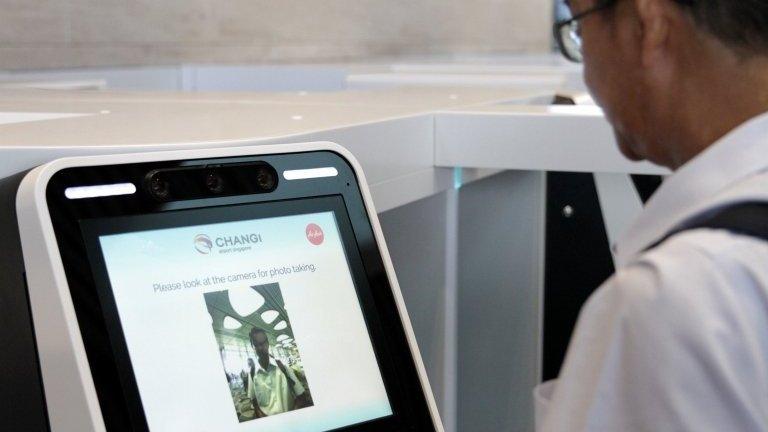Smart luggage firms close because of airline battery rules
- Published

Two smart luggage firms have closed in May, with both blaming changes to airline policies regarding how lithium batteries can be taken on board planes.
Raden and Bluesmart said the changes, by several major airlines in December 2017, had made business impossible.
The new rules meant that luggage batteries had to be removable.
The smart suitcases feature weight sensors, a built-in phone charger and location awareness - but all require battery power.
"...our intent was to add ease and simplicity to your travel experience and this unforeseen policy change has made this impossible," Raden said in a message on its website,, external spotted by The Verge.
Bluesmart's products did not feature removable batteries at all.
The firm described its news as "bittersweet" in an announcement online, external, saying that it had sold its intellectual property to US suitcase brand Travelpro.
'Veritable minefield'
Both firms said the luggage apps would continue to work for existing customers but refunds and replacements would not be possible.
Raden suitcases started at $295 (UK price £250) and are still stocked by some retailers.
At time of writing, Amazon UK has Bluesmart suitcases available with a starting price of £364 ($490).
Analyst Ben Wood, from CCS Insight, said the rules had created confusion at check-in, meaning people were unsure whether they would be able to travel with their bags.
"The integration of lithium-ion batteries and radio technologies such as Bluetooth and cellular connections was always going to make smart luggage a veritable minefield," he told the BBC.
"Given the complex regulations around what you can and can't take on to a plane it is little surprise it has become an issue."
- Published22 March 2017

- Published1 May 2018
